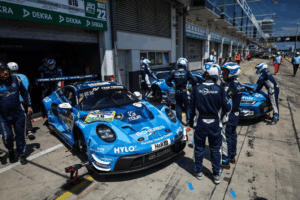Dr. María del Carmen Hernández, pulmonologist and Head of the Sleep Unit at Quirónsalud Vitoria Hospital, warns about the worsening of sleep apnea symptoms in patients who have not been diagnosed during periods of extreme heat. “Extreme heat alters the quality of nighttime sleep, which in turn intensifies fatigue and drowsiness,” highlights the specialist.
Sleep apnea is a respiratory disorder characterized by repeated pauses in breathing during sleep. These interruptions force the brain to partially awaken to resume breathing, which fragments sleep and causes poor quality rest. “People who suffer from sleep apnea often feel constantly tired, even after sleeping for several hours. Additionally, they may experience headaches, irritability, difficulty concentrating, and a greater risk of developing cardiovascular diseases, such as hypertension, arrhythmias, and strokes,” points out the specialist at the Vitoria center.
“The diagnosis of sleep apnea is made through a polysomnography, a sleep study that records brain, respiratory, and cardiac activity during sleep,” explains Dr. Carmen Hernández. “The most effective treatment is continuous positive airway pressure therapy (CPAP), a device that delivers pressurized air through a mask to keep the airways open during sleep.”
“It is important to emphasize that the treatment of sleep apnea should be personalized and adapted to the needs of each patient,” says Dr. Hernández. Finally, the sleep specialist explains that the choice of the most appropriate treatment will depend on the “severity of the disease, the presence of other pathologies, and the patient’s preferences”.
Referrer: MiMub in Spanish












